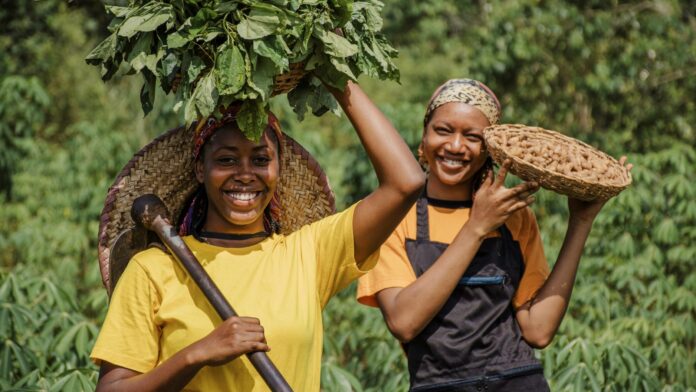A recent study led by CABI sheds light on the involvement of African women and young individuals in agricultural service provision, as outlined in the CABI Agriculture and Bioscience journal. By amalgamating a literature review with ongoing action research conducted in Kenya, the study delves into the fundamental characteristics, advantages, and drawbacks of business models aimed at engaging women and youth in agricultural service provision across Africa.
The findings underscore that while involving African women and youth in agricultural service provision isn’t a universal solution to the array of challenges they encounter, such as limited decision-making power in production processes and income generation, it has proven beneficial in various respects. The researchers argue that certain business models have effectively contributed to economic empowerment, increased entrepreneurial activities, and enhanced the skill sets of women and young individuals involved as service providers.
Successful business models, according to the study, are those that are localized and community-centric, driven by market demands, and deeply integrated within value chains. Nonetheless, challenges persist due to a multitude of factors. Thus, the study emphasizes the imperative for multi-sectoral, inter-institutional collaborations that secure funding and advocate for private sector involvement to ensure sustainability.
Notably, women comprise 55% of Africa’s agricultural workforce, while nearly 60% of the continent’s population was under the age of 25 in 2019, making Africa the world’s youngest continent. Dr. Mariam Kadzamira, the lead author of the study and Senior Researcher at CABI, stresses the pivotal role that women and youth play in Africa’s agricultural landscape. She highlights the necessity for sustained engagement and empowerment through dedicated funding, which should encompass continuous capacity building and access to affordable credit for service providers.
Dr. Monica Kansiime, co-author and Deputy Director of Development and Outreach for Africa at CABI, underscores the importance of industry and private sector involvement in incorporating women and youth into their business strategies and networks. She emphasizes the need for market-driven approaches that not only benefit agribusinesses but also tap into the abundant yet underutilized human resource represented by local women and youth.
The study suggests that future research should focus on expanding the evidence base to ascertain the impact of including women and youth in agricultural service provision on agricultural policies. Additionally, there’s a need to assess the gender dynamics within successful agricultural service business models and identify strategies to overcome socio-cultural barriers, institutional constraints, and financial obstacles that hinder women’s participation in agriculture.
In conclusion, the researchers advocate for comprehensive transdisciplinary research to validate the insights gleaned from action research and similar initiatives. They underscore the importance of quantifying the remuneration of service providers and evaluating the willingness of farmers to pay for services rendered by local women and youth compared to other providers. Such efforts are crucial for fostering inclusive and sustainable agricultural development across Africa.
















 The African Research (AR) Index is a comprehensive scholarly directory and database focused explicitly on journal publishers that publish and disseminate African research.
The African Research (AR) Index is a comprehensive scholarly directory and database focused explicitly on journal publishers that publish and disseminate African research.

